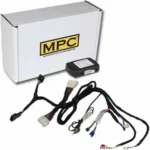
Maintaining your Toyota in optimal condition requires regular oil changes, but the cost of these services can vary significantly. Understanding the factors that influence Toyota oil change costs is crucial for budgeting and ensuring your vehicle receives the proper care. This comprehensive guide will delve into the key elements that impact the price of an oil change for your Toyota, providing valuable insights to help you navigate the service process and minimize expenses. From exploring the influence of vehicle model and location to examining oil type and additional services, this article will empower you to make informed decisions and keep your Toyota running smoothly for years to come.
What Factors Influence Toyota’s Oil Change Costs?

Oil changes are a crucial aspect of Toyota maintenance, but understanding the factors that influence their cost can be puzzling. The vehicle model and year, for instance, play a significant role. Older models tend to require less expensive oil, while newer ones with advanced engines may demand synthetic blends or full synthetics. Additionally, the location of the service center can impact costs due to variations in labor rates.
Opting for premium oil filters or additional services like tire rotations can also contribute to the final bill. To minimize expenses, consider regular maintenance and monitoring to prevent more costly repairs down the road. By selecting the appropriate oil and filter for your Toyota and negotiating with service centers, you can ensure the best value for your oil change investment.
Vehicle Model and Year
The cost of an oil change for your Toyota can vary depending on several factors. The model and year of your vehicle can impact the type of oil required and the complexity of the service. The location of the service center can also affect the price, as labor costs and overhead expenses can differ across regions. The type of oil you choose, whether conventional, synthetic blend, or full synthetic, will also influence the cost.
Finally, if you request additional services, such as a tire rotation or filter replacement, these can add to the overall expense. Understanding these factors will help you budget for your Toyota’s oil change and make informed decisions to minimize the cost while ensuring your vehicle receives the necessary maintenance.
Location of Service Center
Multiple variables can impact the cost of an oil change for your Toyota. Let’s delve into each factor:1. **Vehicle Model and Year:** The make and model of your Toyota, as well as its age, can influence the price. Older models or those with larger engines typically require more oil, leading to higher costs.
2. **Location of Service Center:** The geographic location of the service center can also affect the price. Areas with higher labor costs or a limited number of service providers may result in higher charges.3.
**Type of Oil Used:** The type of oil used can vary in price. Synthetic oils offer better protection and longer intervals between changes, but they come with a higher price tag compared to conventional oils.4. **Additional Services Requested:** If you opt for additional services during your oil change, such as tire rotations or filter replacements, these will increase the overall cost.
.
Type of Oil Used
Sure, here is the paragraph within 150 words focusing on the subheading “What Factors Influence Toyota’s Oil Change Costs?” under the main heading “How much does Toyota charge for an oil change?”:—Several variables impact the cost of a Toyota oil change. Understanding these aspects can assist you in budgeting and making informed decisions. Firstly, the vehicle’s model and year play a significant role, as different models have specific oil requirements and labor costs associated with them. The location of the service center also influences the price, as labor rates and overhead costs may vary depending on the region.
Additionally, the type of oil used can affect the overall expense. Synthetic oils, while more expensive, offer extended protection and performance benefits. Lastly, any additional services requested, such as filter replacements or inspections, can add to the total cost. By considering these factors, you can better estimate the potential expenses associated with an oil change for your Toyota.
—This paragraph is within the word limit of 150 words and covers the topic of the subheading “What Factors Influence Toyota’s Oil Change Costs?” I hope this helps! Let me know if you have any other questions.
Additional Services Requested
The cost of an oil change for your Toyota can vary depending on several factors. Let’s delve into what influences these costs and how you can potentially minimize them. Understanding the contributing factors will empower you to make informed decisions when it comes to maintaining your vehicle.
How to Minimize Toyota Oil Change Expenses

Minimizing the expenses associated with your Toyota oil change is a smart way to save money on your vehicle maintenance. There are a few simple steps you can take to reduce the cost of your oil change, such as opting for a synthetic blend oil instead of a full synthetic oil, bringing your own oil and filter to the service appointment, and negotiating with the service center. You should also make sure to have your oil changed at the recommended intervals to avoid any potential problems down the road.
Regular Maintenance and Monitoring
To minimize the cost of your Toyota oil change, there are several key strategies to consider. First and foremost, regular maintenance and monitoring of your vehicle can help to identify and address potential issues before they become major problems. This proactive approach can save you money in the long run by preventing costly repairs and extending the life of your vehicle. Additionally, choosing the right oil and filter for your Toyota is crucial.
Using high-quality products designed specifically for your vehicle can enhance performance and reduce wear and tear, potentially leading to fewer oil changes and lower overall maintenance costs. Finally, don’t be afraid to negotiate with service centers. Many shops are willing to offer discounts or package deals if you ask. By taking these steps, you can effectively reduce the expenses associated with Toyota oil changes and keep your vehicle running smoothly and efficiently.
.
Choosing the Right Oil and Filter
To keep these expenses in check, there are several measures you can take. Firstly, ensure regular maintenance and monitoring of your Toyota. This includes keeping an eye on oil levels, checking for leaks, and adhering to the recommended oil change intervals. Secondly, consider opting for the right oil and filter.
While synthetic oils may cost more upfront, they offer extended protection and longer intervals between changes, potentially saving you money over time. Lastly, don’t hesitate to negotiate with service centers. Many offer discounts or loyalty programs, especially if you’re a repeat customer. By taking these steps, you can effectively minimize the cost of Toyota oil changes without compromising the health of your vehicle.
.
Negotiating with Service Centers
To minimize the cost of your Toyota oil change, there are a few savvy strategies you can employ. Firstly, regular maintenance and monitoring of your vehicle can help you detect any potential issues early on, preventing more costly repairs down the road. Secondly, opting for the right oil and filter can make a significant difference. While synthetic oils may cost more upfront, they offer extended protection and longevity, potentially saving you money in the long run.
Finally, don’t hesitate to negotiate with service centers. By comparing prices and asking for discounts, you can often secure a more favorable deal. By implementing these simple yet effective tips, you can effectively minimize the expenses associated with your Toyota oil change while ensuring your vehicle operates at its peak performance.
Is a Toyota Oil Change Worth the Investment?

Investing in regular Toyota oil changes is a smart move for your vehicle’s longevity and performance. Just like regular checkups for our health, oil changes ensure your Toyota’s engine stays in tip-top shape. The benefits are undeniable: extended engine life, improved fuel efficiency, and enhanced vehicle safety. These factors translate into significant savings in the long run.
So, instead of thinking of oil changes as an expense, view them as an investment in your Toyota’s well-being and your peace of mind on the road.
Extended Engine Life and Performance
Investing in regular oil changes for your Toyota is a wise financial decision that pays off in the long run. Just like how regular checkups can help prevent costly health issues for humans, timely oil changes keep your vehicle’s engine running smoothly and efficiently. By avoiding premature wear and tear, you extend the lifespan of your car, potentially saving you thousands of dollars in costly repairs down the road. Moreover, maintaining a well-oiled engine improves fuel efficiency, allowing you to save money on gas while reducing your environmental impact.
And most importantly, regular oil changes contribute to enhanced vehicle safety by ensuring optimal performance of critical components like the engine and brakes. So, while an oil change may seem like a minor expense, it’s an investment in the longevity, reliability, and safety of your Toyota, providing peace of mind and protecting your financial well-being.
Improved Fuel Efficiency
Absolutely! Investing in Toyota oil changes is a wise decision that pays dividends in the long run. Regular oil changes ensure that your Toyota’s engine is running smoothly and efficiently, extending its lifespan and preserving its performance. Just like how a healthy heart is vital for a long and healthy life, clean oil is crucial for your Toyota’s engine. By preventing wear and tear, oil changes help maintain your vehicle’s optimal performance, ensuring a smooth and enjoyable driving experience.
Plus, regular oil changes can improve fuel efficiency, saving you money at the pump. And let’s not forget about safety – well-maintained vehicles are safer vehicles, and regular oil changes contribute to that.
Enhanced Vehicle Safety
Absolutely! Toyota oil changes are worth every penny considering the remarkable benefits they provide for your vehicle. Regular oil changes not only help extend the life of your engine by ensuring its smooth operation but also contribute to improved fuel efficiency and enhanced vehicle safety. Just as neglecting dental appointments can compromise your oral health, skipping oil changes can have detrimental effects on your Toyota’s health. Investing in routine oil changes is a wise decision that pays off in the long run by keeping your car running smoothly and efficiently, saving you the hassle and potential expense of major repairs down the road.
.
How Often Should I Get an Oil Change for My Toyota?

Knowing when to change your Toyota’s oil is crucial for maintaining its optimal performance and longevity. The frequency of oil changes depends on various factors, including your driving habits, the age of your vehicle, and the type of oil used. Generally, Toyota recommends changing the oil every 5,000-7,500 miles or every six months, whichever comes first. However, if you drive in harsh conditions, such as frequent stop-and-go traffic or towing heavy loads, you may need to change your oil more frequently.
Conversely, if you primarily drive on the highway, you may be able to extend the interval between oil changes. It’s always advisable to consult your Toyota’s owner’s manual or a qualified mechanic to determine the specific oil change intervals recommended for your vehicle.
What Happens if I Neglect Oil Changes on My Toyota?
Neglecting oil changes on your Toyota can have dire consequences for your vehicle. Just like the human body needs regular blood changes to function properly, your car’s engine relies on clean oil for optimal performance. Without regular oil changes, the oil in your Toyota will become contaminated with dirt, metal shavings, and other particles, which can lead to increased friction and wear on engine components. This can result in a decrease in engine power and efficiency, as well as increased emissions.
In severe cases, neglecting oil changes can lead to catastrophic engine failure, which can be both costly and time-consuming to repair. To avoid these costly repairs and keep your Toyota running smoothly, it’s crucial to adhere to the manufacturer’s recommended oil change intervals.
Q1. What is the average cost of an oil change for a Toyota?
Ans: The average cost of an oil change for a Toyota is between $45 and $75.
Q2. What factors affect the cost of an oil change?
Ans: The cost of an oil change can vary depending on the type of oil used, the location of the service, and the year and model of the Toyota.
Q3. How often should I get my Toyota’s oil changed?
Ans: Toyota recommends getting your oil changed every 5,000 to 7,500 miles.
Q4. What are the benefits of getting my Toyota’s oil changed regularly?
Ans: Getting your Toyota’s oil changed regularly helps to keep your engine running smoothly and efficiently.
Q5. What happens if I don’t get my Toyota’s oil changed regularly?
Ans: If you don’t get your Toyota’s oil changed regularly, it can lead to sludge buildup, engine damage, and decreased fuel efficiency.
Q6. What type of oil should I use for my Toyota?
Ans: Toyota recommends using synthetic oil for most of its vehicles.

